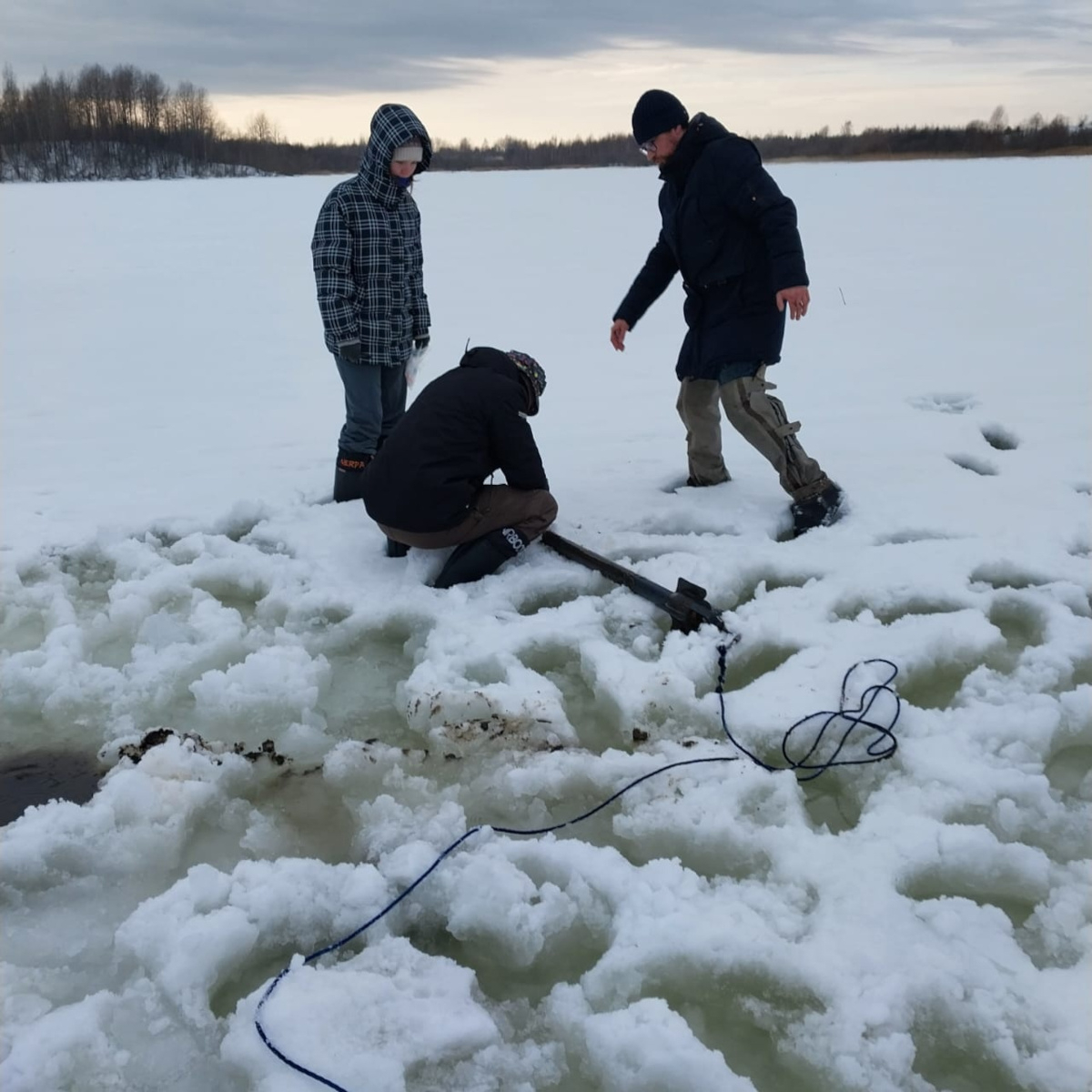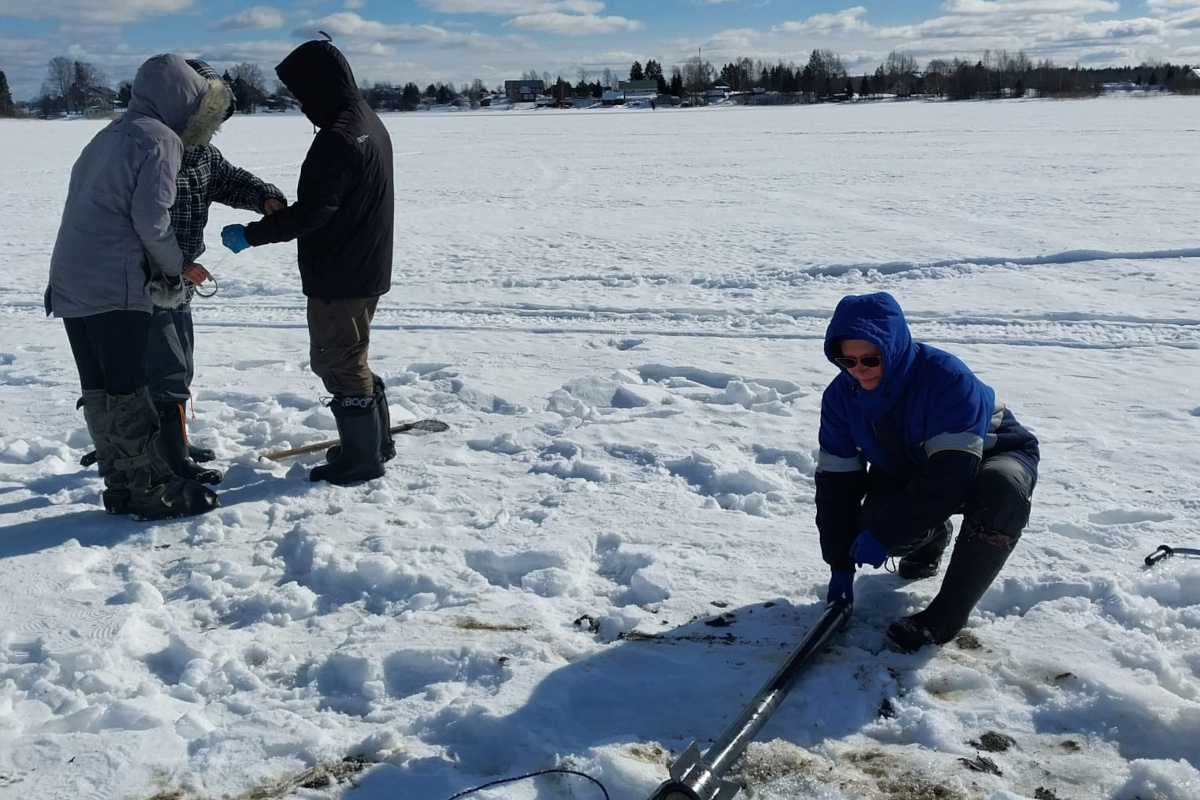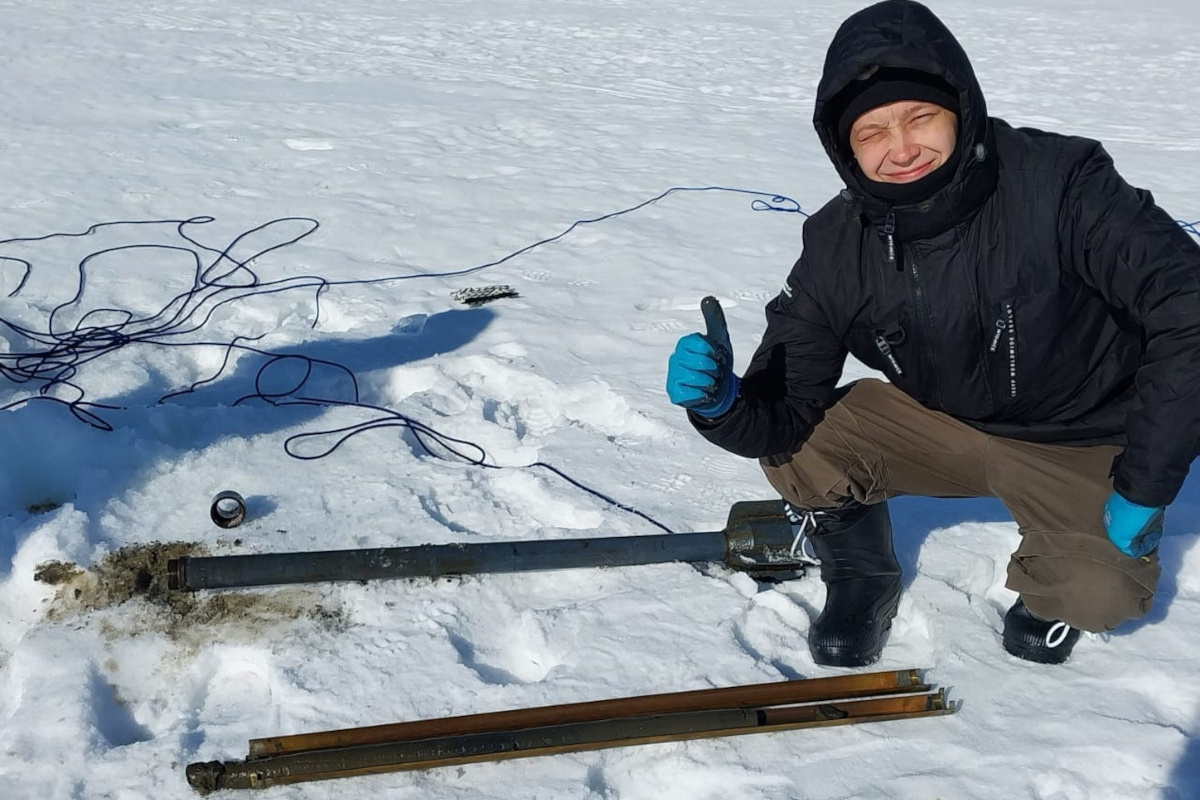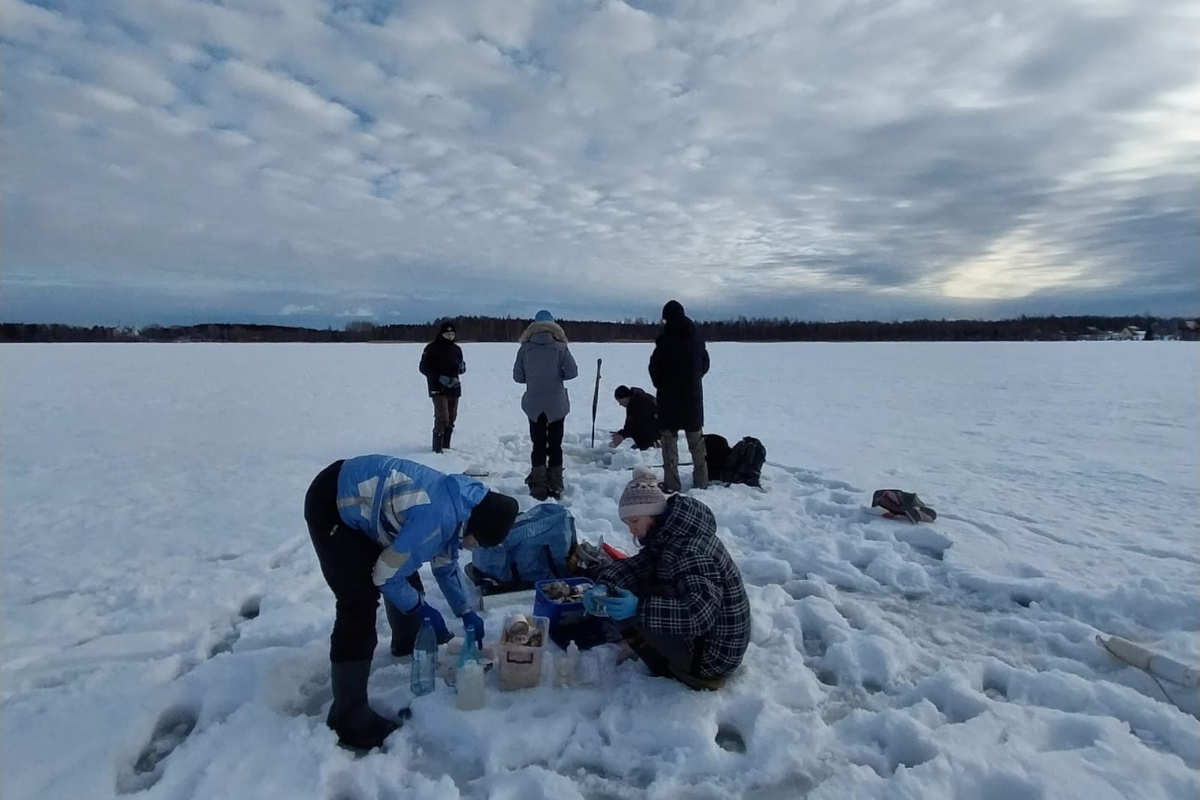St Petersburg University students help identify the causes of lake eutrophication in the Russky Sever National Park
Within the framework of their clinic-based practices, students of the master’s programme "Geoecology" and aspirantura programme "Hydrology" at St Petersburg University have identified both the natural and anthropogenic components in the process of lake eutrophication in the Russky Sever National Park, the Vologda Region. The monitoring of the environmental situation in the region’s water bodies will be continued.
Eutrophication is the saturation of a water body with biogenic elements. A request to establish the root cause of the eutrophication of the lakes in the Russky Sever National Park was submitted to the Environmental Clinic of St Petersburg University by the Park staff.
The students explored the Park’s seven lakes located near the town of Kirillov. They carried out a set of hydrophysical and hydrochemical analyses of the ice. They studied the following parameters: depth, conductivity and temperature of water; and dissolved oxygen and carbon dioxide. Water and biota samples were also taken.
The Environmental Clinic of St Petersburg University is a platform for developing the required professional and special competencies in students. That helps them upgrade their professional skills during their R&D work and educational activities in the field of ecology, nature management and sustainable development.
’Using a spectrophotometer in the field laboratory, we estimated the content of biogenic elements and colour in water. By titration, the concentration of permanganate index of water was obtained. Next, we will process the samples at the resource centres of St Petersburg University. We will analyse: the concentrations of the main ions; the isotopic composition of water; and coloured dissolved organic matter,’ said Pavel Zelenkovskii, Associate Professor in the Department of Geoecology at St Petersburg University. He is a co-head of these clinic-based practices.

In addition, during their practices, the students selected lake sediment cores for further geochemical analysis and estimation of possible contamination of sediments. Most of the analyses will be carried out using the equipment of the St Petersburg University Research Park: Chemical Analysis and Materials Research Centre; Environmental Safety Observatory; and the educational laboratory of physical and chemical methods of analysis of the technical support department for academic programmes in the main fields of study "Geography", "Geology", "Geoecology" and "Soil Science".
’Now we can speak about the natural causes of the lake eutrophication in the National Park area. It happens because of the functioning of the Northern Dvina water system and the Volga—Baltic waterway. There is also a significant anthropogenic load on particular water bodies. Thus, the task is to regulate the increasing tourist load in the National Park,’ said Irina Fedorova, Associate Professor at St Petersburg University and Head of the Environmental Clinic.
According to her, cooperation with the Russky Sever National Park will continue. In the summer of 2023, it is planned to study the karst deep lakes and eutrophic shallow lakes located in the Park and their drainage areas.




